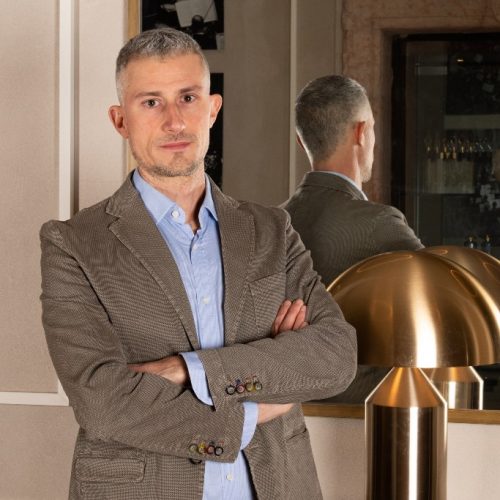
I was born in 1982 in Verona. After graduating as a Tourist Expert, I got a degree in International and Diplomatic Sciences at the University of Trieste. The university years spent in that region among Italy, Austria and the former Yugoslavia, and the time I later spent for study and work between Munich and Berlin, have certainly instilled in me a passion for European history. Also for this reason, in my visits I try to go beyond the "classical" topics faced in Verona (the Romans, the Scaligeri dynasty, the myth of Juliet ...); for me, it is very important to re-establish a link between local and national and European history, because Verona is a bridge-city, both geographically and in terms of historical connections: it has solid Roman pillars, but it is an obligatory passage towards the German world; it has a Venetian aesthetic, but with a classic Roman primacy compared to the Lagoon; it got international fame in the nineteenth century, but with very important outcomes, on a national level, also in the twentieth century.
After finishing my studies in 2007, I worked for almost five years at the Reception and Tourist Promotion Office of my city, a very formative and tangible professional experience: the continuous contact with an international public became a real training ground to promote my city, and developed a sensitivity towards the visitors' nees. This is why in those years I decided to study for obtaining the tour leader license in 2009, and the tourist guide license in 2011.
For fifteen years I have been accompanying and guiding international visitors, both groups and individuals, not only in the city of Verona, but also in its beautiful and varied sorrounding region.
Don't worry, I'll show you all the most famous and postcard-worthy places! But by visiting Verona with me, you will also have to enter numerous "shadow cones": where the beautiful marble buildings of the Roman times were replaced by Christian modesty made of tuff and river stones; where even the myths of the Venetian Renaissance will have to be buried by the war urgencies of a border city; we will still admire the illuminated nineteenth-century urban renovations, but we will not neglect the twentieth century, as mellow as Art Nouveau, despite its political "bad name"...
If you can, even before visiting the city of Verona, "baptize" yourself in the clear waters of Lake Garda, and absorb the warmth and classic splendour of a land where olive and lemon trees blossom...travel slowly through the pastures of the Lessinia Plateau, where ancient gestures still give shape to local cheeses...walk in the most civilized rural landscapes, among parish churches and famous vineyards of Valpolicella and Soave, and descend, following river Adige, all the way down to the fertile plains where rice fields and lush vegetable gardens extend. Discovering the province, of course, is also the most genuine way to get closer to local food and wine...
A web site of
Ass. ASSOGUIDE VERONA
Via Maggi, 7
37121 VERONA
C.F.: 03238250231